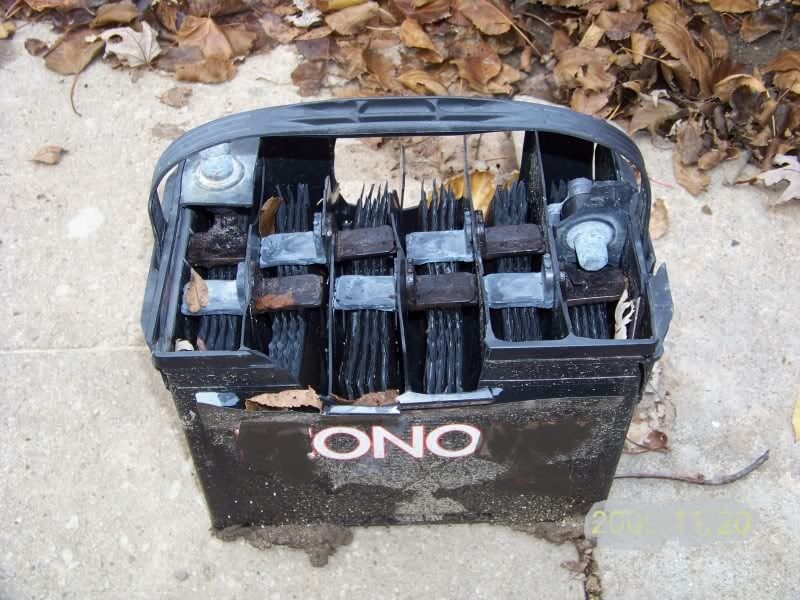Why is my battery smoking?

- Sponsor
- OPTIMA Chargers
- Location
- Milwaukee, WI


Some people first hear a hissing noise, while others see what appears to be smoke coming of their battery, while others may notice a foul odor that smells of rotten eggs coming from the battery. Whatever alerts someone to a potential issue with their car battery and/or charging system, whether it is hearing it, seeing it or smelling it, we want to make sure people address the problem safely. In most of these cases, a combination of excessive heat & overcharging is at the root of the issue, most often occurring in either hot climates or the summertime, although it can happen any time of year.
In most situations, a battery is being overcharged to the point that the battery begins venting the excess pressure created by the overcharging scenario. THE GAS VENTED BY OVERCHARGED CAR BATTERIES IS BOTH FLAMMABLE & TOXIC, SO TAKE EVERY PRECAUTION POSSIBLE. In extreme cases, if the battery cannot vent the excess pressure fast enough, a catastrophic event can occur and the battery can end up looking very much like the one pictured above.
So how does a battery arrive at that point? One way is for it to be overcharged with a battery charger. We always recommend using battery chargers that properly-regulate both amperage and voltage, as some chargers will simply dump current into a battery as long as they are turned on and plugged in, with no regard to the battery's state of charge. It doesn't take long for even a 50-amp charger to severely overcharge a 50Ah battery. One of the easiest ways to identify a properly-regulated charger is if it indicates on the packaging or charger itself, that it is microprocessor-controlled. All OPTIMA chargers and maintainers have this important safety functionality.
Just as a battery charger can overcharge a battery, so can a faulty vehicle charging system, most often an alternator. We recommend typical alternator output to be in the range of about 13.7-14.7 volts, which you can measure directly at the battery terminals, while the vehicle is running. If an alternator is overcharging a battery, it can vent, just like it would if it were being overcharged by a battery charger.
OPTIMA batteries are more resilient in high heat applications than flooded batteries, but they are still susceptible to permanent damage, if they are overcharged. One of the most-common scenarios we hear about are folks who jump-start cars that have sat for an extended period of time. Once a battery is discharged below 12.4 volts, sulfation begins to form in the battery, which diminishes capacity and lifespan and makes it harder for the battery to accept & deliver current. We suggest using a higher amperage level of about 10 amps, to help break up this sulfation, but monitoring the battery closely during the charging process. It's ok if the battery gets warm while charging, but if it gets hot to the touch, charging should be discontinued immediately and the battery should be recycled.
When an even higher amperage rate is used on such a battery (and some chargers are capable of charging at up to 200 amps), the battery can be severely overcharged and overheated, resulting in permanent, irreversible damage. If you encounter a battery that is venting, use extreme caution in handling the battery and moving it to a well-ventilated location. OPTIMA does sell chargers and maintainers that are microprocessor-controlled and will only deliver the current to your battery that it needs.
